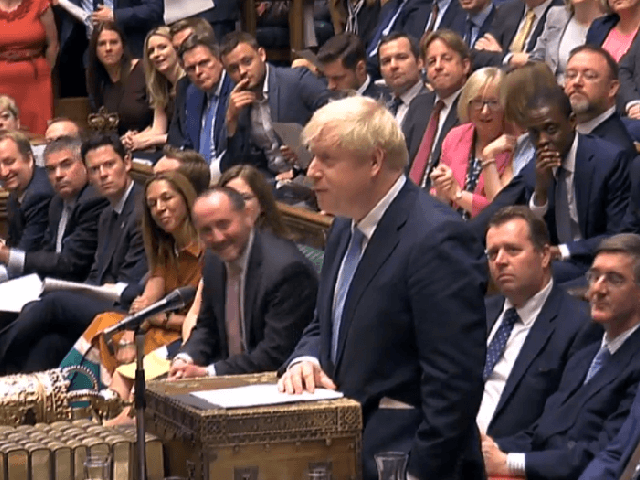New British Prime Minister Boris Johnson said it was the mission and purpose of his government to make the United Kingdom the “greatest place” to raise a family in his first address to Parliament as leader, but courted the displeasure of small-c conservatives by again talking up an illegal migrant amnesty.
Speaking in Parliament, the Prime Minister hit similar themes to those he already expressed Wednesday night outside Downing Street as he took on the office of Prime Minister, promising to deliver Brexit and to work on law and order. In particular, he confirmed his pledge to put 20,000 more police officers on the streets.
But Mr Johnson also articulated the feeling, clearly held by many in Britain, that the country had been put into a state of managed decline. He told Parliament: “Over the past few years, too many people in this country feel they have been told repeatedly and relentlessly what they cannot do. Since I was a child I remember respectable authorities asserting that our time as a nation has passed, that we should be content with mediocrity and managed decline.
“…I believe in this pivotal moment in our national story, we are going to prove the doubters wrong again.”
Mr Johnson promised a coming golden age for the country, when he continued: “The greatest place to bring up a family. The greatest place to send your kids to school. The greatest place to set up a business… that is the mission of the cabinet I have appointed, and that is the purpose of the government I am leading.
“And that is why I believe that if we bend our sinews to the task now, there is every chance that in 2050… we will be able to look back on this extraordinary period as the beginning of a new golden age for our United Kingdom.”
While the mainstream media has been fast to label Mr Johnson as a British Trump, and his own insistence that he was going to make Britain great again may have aped his United States counterpart, Mr Johnson’s own record has shown him up to be far more liberal of the President, and often deeply critical of Trump.
One area where this is particularly clear is Johnson’s long-held views on an amnesty for illegal migrants. His pledge to deliver one of those while Mayor of London was raised in Parliament Thursday afternoon by Labour MP Rupa Huq, who asked him whether he would stand by his previous views. Rather than deflect or delay, as is normal for British politicians, Mr Johnson approached the topic enthusiastically and said the government’s standing commitment to deport illegals was nothing more than theoretical, difficult, and something that needed looking at.
Mr Johnson told the chamber: “I do think that our arrangements with theoretically being committed to the expulsion of perhaps half a million people who don’t have the correct papers and who may have been living and working here for many years without being involved in any criminal activity at all, I think that legal position is anomalous.
“And we saw the difficulties that kind of problem occasioned in the Windrush fiasco… I do think we need to look at our arrangements for people who have lived and worked here for a long time, unable to enter the economy, unable to participate properly or pay taxes, without documents. The truth is the law already allows them an effective amnesty, but we should look at the economic advantages and disadvantages of [his pledge for an amnesty for illegal immigrants].”
Breitbart London reported this week on Mr Johnson’s pro-amnesty proclamations when he said that illegals in London had “earned” amnesty in 2008, that he wanted an amnesty so illegals could pay taxes in 2013, and when he called for amnesty for over one million illegals during the Brexit campaign. It has been Conservative Party policy for the last three general elections to control migration to the United Kingdom, and as part of that reduce net inflows to under 100,000 a year.
That target has not been met.

COMMENTS
Please let us know if you're having issues with commenting.